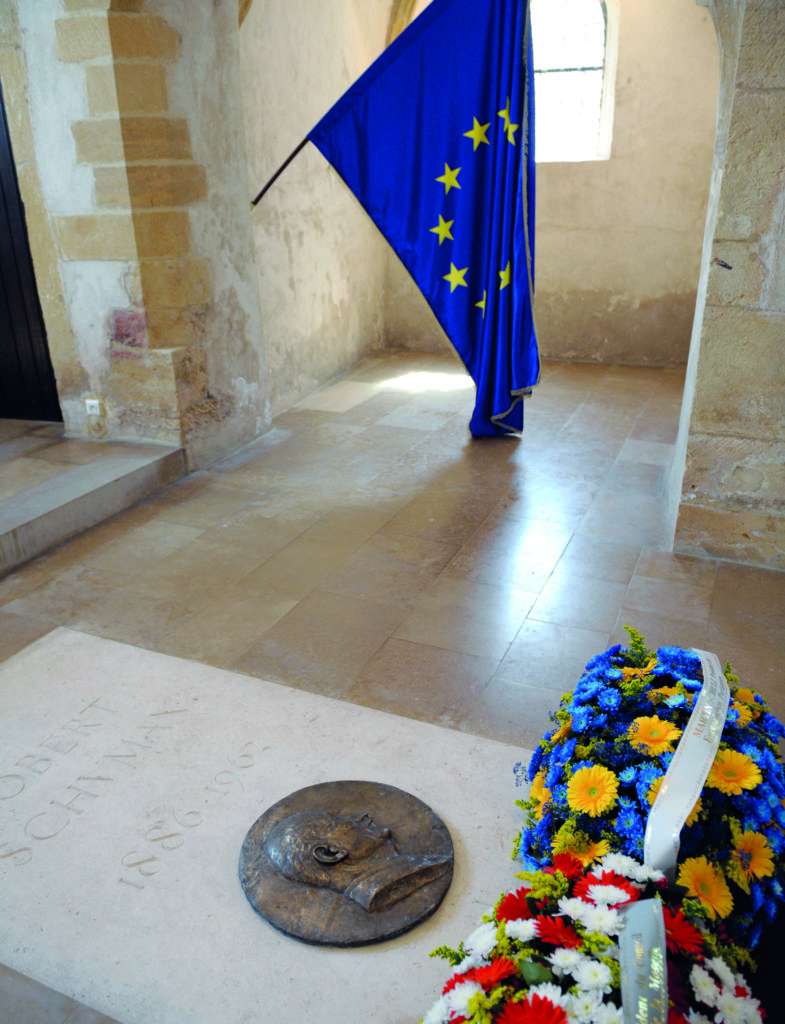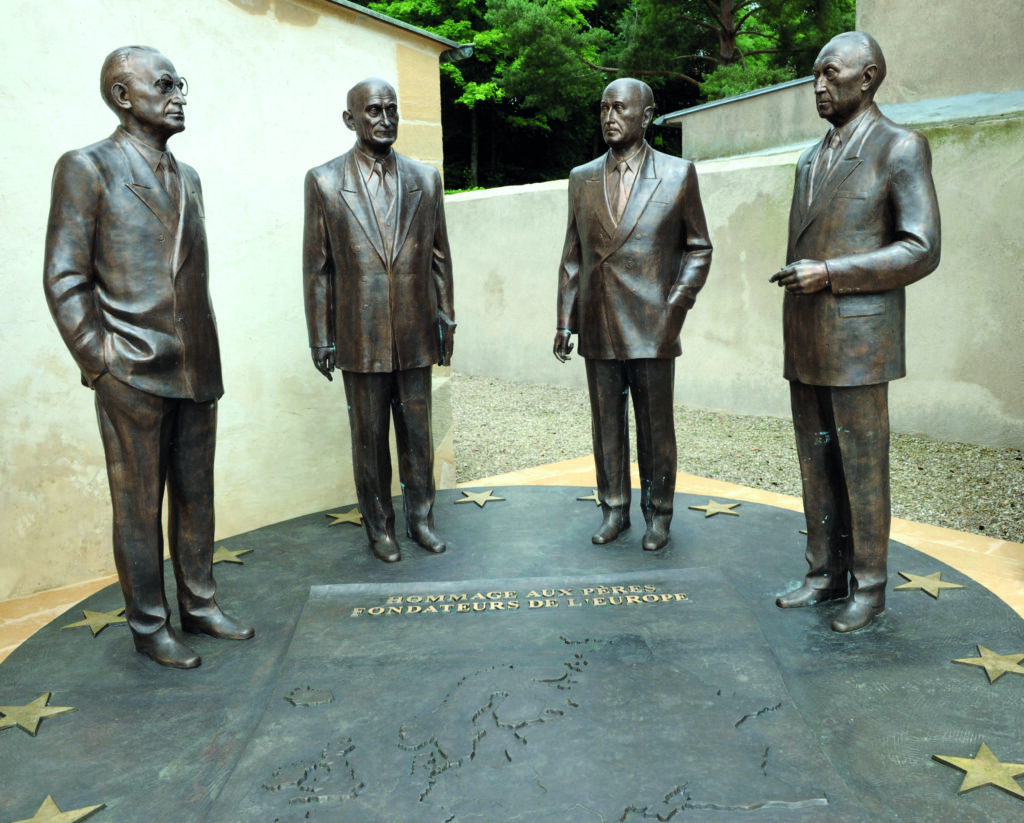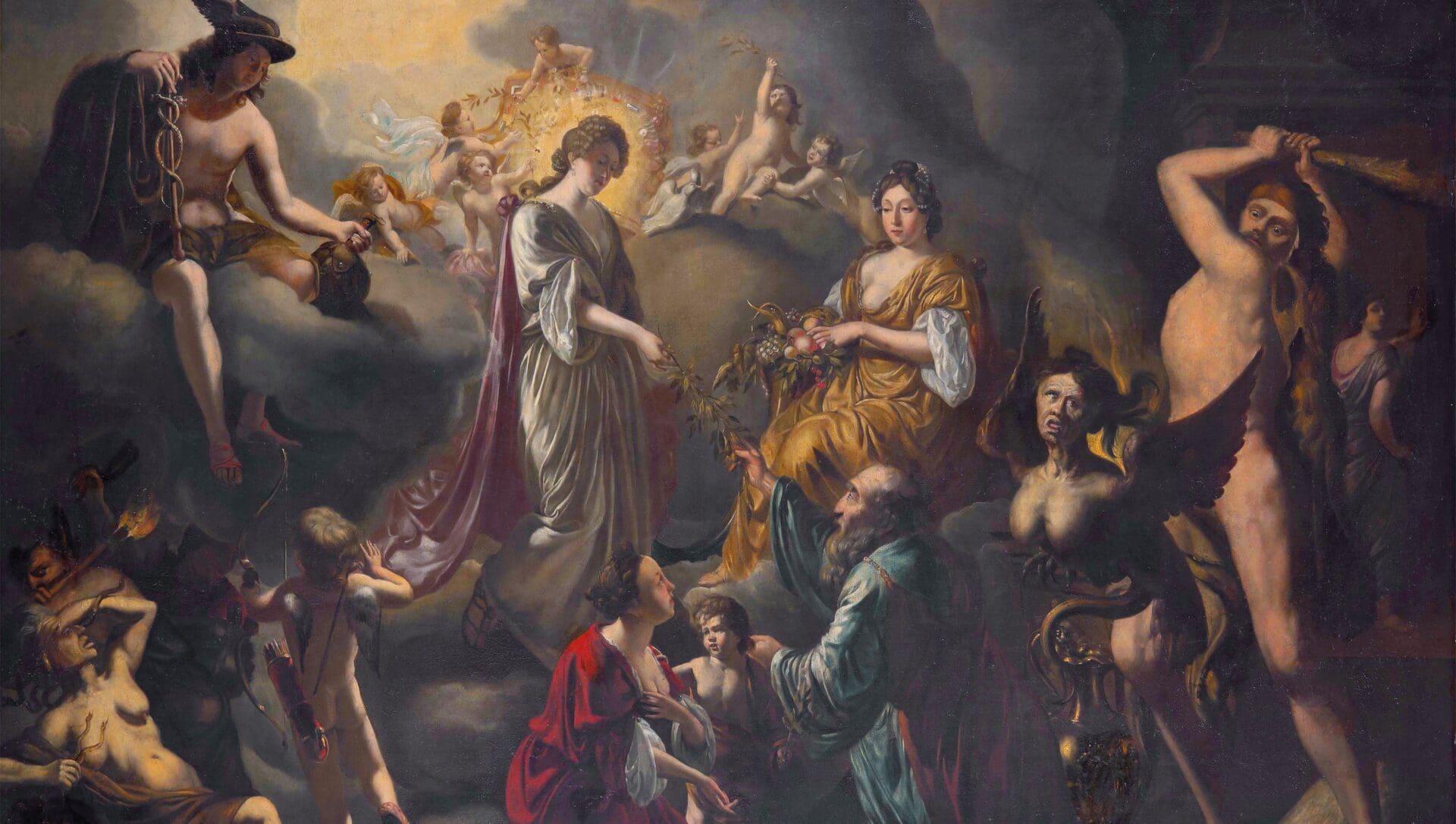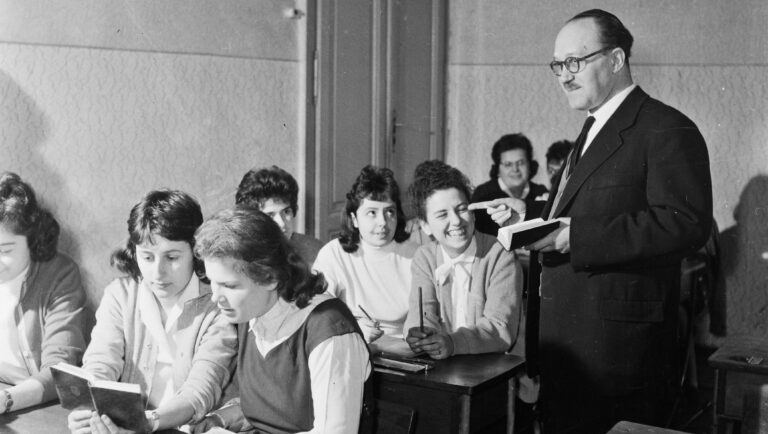This article was published in our print edition’s Special Issue on the European Union.
The European Union is currently seeking a new direction, as shown by an increasing number of concepts and developments, including most notably the European Commission’s White Paper on the Future of Europe,1 published in 2017, and the Conference on the Future of Europe, organized between April 2021 and May 2022, and initiated by the European Parliament, the Council, and the Commission. These include countless topics and proposals, starting with climate change and environmental protection, health care, social justice and employment, values and rights, the rule of law, security, digital transition, European democracy, migration, education, culture, youth, and sports. Although the proposals contain general objectives and more than three hundred specific measures,2 no new vision or concrete goal of where the EU wants to be in twenty or thirty years is emerging. The individual objectives are often regarded as tools, and judged on their effectiveness not in and of themselves, but in relation to the goal to be achieved.
The Beginnings of European Integration After the Second World War
It is interesting to note how rarely references are made to the beginnings of European integration, and to the ideas of the Founding Fathers, who were looking for a way forward for Europe at a time that in many ways was even more difficult than our own. By the end of the Second World War, the economies and societies of the countries that had been at war were in an incredible state of destruction, with their largest cities in ruins, extremely high rates of unemployment, and even very uncertain food supplies. More than anything else, the dire situation in the winter of 1945–46 can be illustrated by the fact that many in Europe died of hypothermia, which had been virtually unknown for several decades.
Post 1945, the challenge for Europe was how to restart the economy in each country, and at the same time to ensure long-term peace on the continent. These two goals were initially at variance, as individual countries needed the markets of other countries to varying degrees in order to grow their own exports and imports. In other words, it was in the interests of European countries that had recently been at war with one another to support the economic growth of their neighbours. The most difficult and controversial question in the years after 1945 was that of Germany. In addition, the political interests of the Soviet Union and the United States also had to be taken into consideration, which sometimes advanced and sometimes hindered the economic interests of European countries.
All of this is worth recalling, because in that situation, which was at least as complex as today’s, the architects of European integration managed to develop a clear goal and the appropriate tools to achieve it. It is Europe’s good fortune that in the period following the Second World War, politicians with the courage and ability to think beyond parliamentary cycles rose to positions of power in a number of Western European countries.

The Founding Fathers
It is interesting to note that—unlike in the USA, where the principal Founding Fathers are considered to be the political leaders who negotiated over and signed the Declaration of Independence or the US Constitution3—there is still no general agreement on who are considered the Founding Fathers of the EU. The website of the European Parliament lists eleven,4 but the demand for political correctness can be felt here: every party-political family seems to be entitled to at least one such founder. However, the fact is that the six countries which established the European Coal and Steel Community in 1951, and then the European Economic Community and EUROATOM with the Rome Treaties of 1957, were governed by Christian Democratic parties.
The roles of Jean Monnet and Robert Schuman on the French side, Chancellor Konrad Adenauer on the German, and Alcide De Gasperi on the Italian side are all beyond dispute. Winston Churchill’s attitude towards European integration can be considered quite singular. After the British parliamentary elections of 1945, Churchill, then in opposition, expressed a beautiful and moving vision of a united Europe,
and was one of the first to use the term ‘United States of Europe’. However, he was not so enthusiastic about the European Coal and Steel Community, and when he returned as prime minister, he did not take steps towards joining it. This process only began under his successor.
Robert Schuman’s importance in launching the process of European integration is indisputable. He was the first French politician who dared break with a tenet of French foreign policy that had been followed almost continuously since Richelieu, which considered it axiomatic that only a weak Germany could guarantee French security. By formulating and publicizing the Schuman Plan, he started a process that continues to this day, which twenty-seven EU countries currently participate in, and which still others want to participate in. Schumann was a politician who lived and professed his Roman Catholic faith, always carried a Bible with him in his briefcase, and regularly prayed during breaks in negotiations. His personality is well characterized by the ‘outburst’ of Henry Gauquie, the French ambassador in Budapest: ‘What am I to do with a man who prays all day?’5
Schuman quickly realized that the reconstruction of Europe could not depend only on goodwill and money from the USA: the relationship with Germany had to be settled, especially when it came to economic matters. On the other hand, the two main pillars of reconstruction, coal mining and steel and iron metallurgy, were not exclusively economic but also political issues: how they were handled could lead either to lasting peace or another war. The possibility of cooperation was made easier by the fact that from September 1949, the likewise devoutly Catholic Konrad Adenauer was chancellor of Germany. The intellectual father of the plan was the economist Jean Monnet, whose concept had a decisive influence on Schuman, who worked on it with his colleagues in the utmost secrecy. Before it was made public, the draft was shown only to the US secretary of state, who approved it. A courier also took it to Adenauer.
‘No new vision or concrete goal of where the EU wants to be in twenty or thirty years is emerging’
The goals can be clearly seen from the remarkably short, two-and-a-half-page declaration: the preservation of world peace, the restarting of the European economy, and the establishment of solidarity among the peoples of Europe. The instrument of these aims would be a central authority coordinating coal and steel production and trade, which would act independently of the national governments and make binding decisions for them. Thus, the concept of the supranational institutional system, which had not been tried anywhere before, was born, to the acute consternation of politicians of the UK. It was completely foreign to British thinking that any other institution besides Parliament could make binding decisions for the country. This was part of the reason why the UK chose not to participate in the signing of the Treaty establishing the European Coal and Steel Community (ECSC), which implemented the declaration.

‘The most important lesson from the lives of the Founding Fathers of European integration…is precisely the need for this sort of long-term, strategic thinking’
The ECSC Treaty was signed a few months later in Paris on 18 April 1951. The text was written by Jean Monnet, who among all his contemporaries had perhaps the most varied career. He was a true manager, who looked for solutions even in the most hopeless situations. He saw very clearly that if Europe did not come together, it would be pushed to the periphery of global political and economic life, behind not just the USA and USSR but—and here he showed particular foresight—even China and India. He was elected the first president of the new supranational institution, the High Authority. He worked with great energy, and demanded the same from his colleagues. The local residents called the headquarters of the organization the ‘house of fools’ after seeing its windows lit up even at night.6
Italy’s history would almost certainly have turned out differently had Alcide De Gasperi not become prime minister after the Second World War. Like Schuman, he first prepared for the priesthood and then spent ten years in exile in the Vatican Library. He quickly recognized the opportunities inherent in the Schuman Plan, and particularly its potential to secure peace. He also knew that Franco-German reconciliation was the key to peace in Europe, so after the signing of the ECSC Treaty, he tried to mediate between the German and French politicians whenever he saw that progress towards further integration had stalled.7
The Germany and EU of today would be unthinkable without Konrad Adenauer. Born in deeply Catholic Cologne, the politician became chancellor of West Germany in 1949, as a result of the first free parliamentary elections following the Second World War. He was entrusted with this responsibility at a time when European public opinion was still in favour of leaving Germany economically paralysed. Step by step, he managed to extricate his country from this political and economic embargo, and fourteen years later, by the end of his term as chancellor, West Germany already had the largest and strongest economy in the European Community.8
What Did the Founding Fathers Teach?
Few biographies highlight the fact, but they all professed and lived the Catholic faith. This was certainly important in that they knew and accepted the cross-border, supranational structure of the Roman Catholic Church.9 Another thing they had in common was political courage: they were able and willing to take a long-term view, and did not sacrifice their talents on the altar of parliamentary cycles.
The most important lesson from the lives of the Founding Fathers of European integration, and one which still guides it today, is precisely the need for this sort of long-term, strategic thinking: first, it is necessary to establish the specific goal, then the means to achieve it. To attain the triple objective of peace, prosperity, and solidarity, the means they chose were economic integration, the creation of a common market, and a supranational institutional system. Seventy years later, we can say that both the goal and the means of attaining it were wisely chosen. Since that time, there has been no act of war on the territory of an EU member state, economic growth has been accompanied by increased prosperity everywhere, and the solidarity between individual regions and member states has likewise stood the test of time.
The assessment of political integration, which intensified in the early 2000s, is much less clear. Perhaps the biggest difficulty is precisely the lack of clearly defined goals, or in other words, the problem political integration was meant to solve. The statements one hears in this regard, about a federal Europe, joint European parties and party lists, etc., do not give EU citizens the same sort of metrics for judging success and failure that are available in the case of, for instance, economic integration.
One of the elements underpinning the success of the Schuman Plan and the economic integration it led to is its simple, tangible nature, which meant that even citizens less aware of political issues at the European level could easily understand it. Everyone wants stability and higher standards of living, and if the means to this end is a willingness to reciprocally open markets and transfer some related decisions to European institutions, then so be it.
It is also a fact that the EU cannot isolate itself from political and economic changes at the global level, and must be capable of reacting to them. These challenges are to an extent different for the modern EU, which comprises twenty-seven countries, than they were for the six founding countries after the Second World War. However, the current moment would undoubtedly benefit from a new Schuman Plan that set out the EU’s goals for the next seventy years with comparable brevity and clarity. Until such a plan is set out, there is no sense tinkering with detailed policy programmes and institutional reforms, as these often seem little more than exercises in papering over the cracks. When creating the new plan, it is worth considering which of the original objectives ought to be retained. The continued maintenance of peace, for instance, has a continued relevance which, of course, no one would dispute. The conflicts raging in regions ever closer to the borders of the EU also reinforce this. EU citizens certainly do not want lower living standards, so the common market must also be retained. Brexit is the clearest example of how difficult it is for an economy the size of the UK, linked to many countries around the world by historical and linguistic ties, to even maintain, outside the EU, the living standards it enjoyed as a member of the common market. Since there have always been and will always be economically stronger and weaker sectors in each member state, solidarity between nations must also be maintained. Since this primarily relates to the economic necessity of maintaining the internal market and is thus closely related to prosperity, which is key to lasting peace, it would be good if its operation remained based on economic rationality and did not become a hostage to political trends and legal procedures.
We can only hope that the debates concerning the future of the EU will increasingly focus on the goals, and that European politicians will emerge who can formulate them with the faith and courage of the Founding Fathers, ensuring at the same time that the EU remains a community of peace, prosperity, and solidarity. Perhaps nothing more than this is needed.
Translated by Thomas Sneddon
NOTES
1 White Paper on the Future of Europe: Reflections and Scenarios for the EU27 by 2025, Document 52017DC2025, EUR-Lex (1 March 2017), https://eur-lex.europa.eu/legal-content/EN/TXT/?uri=COM%3A2017%3A2025%3AFIN, accessed 10 March 2024.
2 European Commission, ‘Conference on the Future of Europe: Final Report and Proposals’, commission. europa.eu (May 2022), https://commission.europa.eu/strategy-and-policy/priorities-2019-2024/new-push-european-democracy/conference-future-europe_en.
3 Out of the fifty-five Founding Fathers, the seven most influential and recognized political leaders were John Adams, Benjamin Franklin, Alexander Hamilton, John Jay, Thomas Jefferson, James Madison, and George Washington.
4 Konrad Adenauer, Josep Bech, Johan Willem Beyen, Winston Churchill, Alcide De Gasperi, Walter Hallstein, Sicco Mansholt, Jean Monnet, Robert Schuman, Paul-Henri Spaak, and Altiero Spinelli.
5 András Osztovits, ‘Afterword’, in: Robert Schuman: Európáért (Robert Schuman: For Europe) (Budapest: Osiris Kiadó, 2022), 109.
6 Bálint Szele, Jean Monnet, Európa atyja (Jean Monnet, Father of Europe) (Debrecen: Csokonai, 2004), 98–106.
7 One of the most complete biographies is given in Géza M. Szebeni’s Alcide De Gasperi – Egy kereszténydemokrata a 20. században (Alcide De Gasperi: A Christian Democrat in the Twentieth Century) (Budapest: Magyar Szemle Alapítvány, 2007).
8 Géza M. Szebeni, Egy kereszténydemokrata az új Németországért: Konrad Adenauer (A Christian Democrat for a New Germany: Konrad Adenauer) (Budapest: Magyar Szemle Alapítvány, 2010).
9 László Kecskés, EU-jog és jogharmonizáció (EU Law and Legal Harmonization) (bővített, harmadik kiadás, Budapest: Hvg-Orac, 2009), 24–25.







